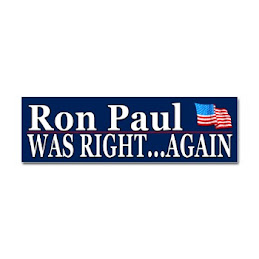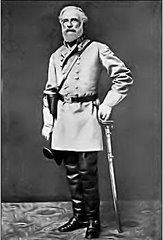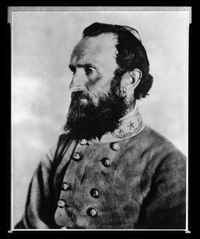It seems like just two days ago we were wondering if Bush stole the election from Al Gore, and it seems just one day ago we were wondering if John Kerry could defeat George Bush, and now, we are in to a crowded and heated race for the 2008 elections for President of the United States of America. Two years from now, our President will not be George Bush, and less than a year and a half from now, we will know who our new President will be. Time marches on the world of politics.
Two years ago, Hillary Clinton was the sure favorite, at least for the Democratic Party. It was a strategic move on her part to wait until 2008 so that she could have an "easier" run. However now, she has her work cut out for her. It will be hard enough just getting through the primaries. Tough Hillary will have to face a slick Barack Obama, and a slick John Edwards, as well as all of the other Democratic Presidential hopefuls, just in the primaries.
She will then have to get past the Republican nominee, whoever that is. Obviously, the front-runners on the Republican ticket are John McCain, Rudy Giuliani, and Mitt Romney. But whereas just two years ago McCain and Giuliani were thought to be the only two with a chance, unless Condalisa Rice decided to run, it now appears that the Republican race is tighter than what many thought it would be, just as the Democratic race is. Any of the three big Republicans could pull away and carry momentum into the primaries, and easily win, but they could also all cancel each other out, giving rise to a Fred Thompson, Tommy Thompson, Ron Paul, Mike Huckabee, Sam Brownback, and any others. We really don’t know, and it is still fair game, even to some of the "lesser" candidates, on both the Republican and Democratic sides.
Still, I think Hillary is one of the favorites, possibly the favorite, to win. She has a name. She has been First Lady, as well as Senator of one of the most populated states in America, New York. She has a way to both be a good and slick debater, but still come across as tough woman. As for me, personally, I don’t want her to win, and fortunately she does have her work cut out for her. However, I do think that she has a good chance. There are not many Republicans, in my opinion, who can beat her in the general election.
Barack Obama is slick, but still young. I know people think that because he stands such a good chance at winning, he will stick around until the end. However, I think that there is a chance, maybe not big, but a reasonable chance, that Obama could drop himself out, possibly even before the primaries. If he did this, he would be considered by some people to have more class, and it would not be considered as much of a defeat as it would if he would if he lost sticking it out. It may set him up for four years or eight years later where although he is still young, he will be experienced, and will have a good name. Then, he may be hard to beat. Of course, a smaller candidate could really come on and become another "Obama" four or eight years from now, making Obama like Clinton- what was thought to be a sure win may become a hard struggle.
Of course, if Clinton and Obama get into heated debates, then Clinton may make Obama look unprepared for the office, and Obama may make Clinton look like a bully. This could open the door for a heard-of, popular, and slick John Edwards. John Edwards is perhaps the next in line behind Obama and Clinton on the Democratic side. If he does not mess himself up, and if he stays in the race, then he has a very good chance of making a run and bringing momentum into the primaries, and possibly winning the primaries. However, if they all three cancel each other out, it could make room for someone like Joe Biden, Wes Clark, Bill Richardson, and any others to make a surprise run.
The Republican side is similar. You have a tough Rudy Giuliani who could probably beat about anybody on the Democratic side. You also have John McCain. McCain is interesting, in that he is not really tough or slick, but he is experienced and has a name. Neither McCain nor Giuliani have been loved by typical conservative Christians, but yet they seem to still be the leader in the polls. Most conservatives know that Giuliani is pro-choice. If conservatives had a choice between McCain and Giuliani on such ethical issues as abortion and homosexual marriage, they would choose McCain, but Giuliani seems to be considered a better leader than McCain, and is given a better chance to beat Hillary Clinton. One reason is because he is from New York, another reason is because of his moderate-at-best views, but yet another reason, is that he probably just has more debt and money to win the general election than the other Republican candidates, even including McCain.
However, if McCain and Giuliani knocked each other out in the same hypothetical way presented between Clinton and Obama, Mitt Romney would be at hand to come in and win the primaries, similary to how Edwards could, and how Kerry did it in 2004, when all of the leading candidates seemed to knock each other out. But Romney has enough popularity that he could get knocked out as well. Many Christians, who make up a large but not full portion of the Republican voters, would not vote for Romney on account of him being Morman, not Christian. Giuliani is Roman Catholic, and McCain is Episcopalian.
If all three of these knock each other out, who could that leave? I think that Sam Brownback would probably be next in line, followed by Ron Paul, Mike Huckabee, Tommy Thompson, or Fred Thompson if he indeed runs. Brownback and Huckabee, in my opinion, is a lot of what would be considered modern-day traditional conservatives. I know it sounds oxymoron, but what I mean is that when you hear the word "conservative" outside of the main stream media and the Democrats, you think of people like Brownback and Huckabee. When the media and the Democratic Party become in the mix, conservatism is thought along the lines of a McCain or Mitt Romney. Both Huckabee and Brownback seem to lean to traditional values, and a government kept in check in power. In fact, Huckabee was a Baptist Minister. In saying this, however, Huckabee does seem to look to government a little more than many of the "modern-day traditional conservatives" would, just not as much as a raving liberal.
An interesting candidate is Ron Paul. He is like the Joe Liberman or Zel Miller of the Republican Party. Many of his views are not what would be considered conservative, but yet he claims to be the "true Republican" running. He would be more of a traditional conservative if you went back a generation or two. Where Liberman is a Democrat for the war, Ron Paul is a Republican strongly against the war. Ron Paul is not for a Federal law against abortion or homosexual marriage, and he is not for a Federal drug war. These things would turn many conservatives off.
Yet there are still some things that would make Ron Paul attractive to the conservatives, if the conservatives would just open-mindedly hear him out. Ron Paul is a proclaimed Christian, and although he is not for a Federal law against abortion or homosexual marriage, he is for states rights on those issues, giving conservatives improvement from the Roe Vs. Wade court decision. He even identifies himself as pro-life. Ron Paul is for tougher immigration laws. Ron Paul has been one of the more consistent politicians running for President in terms of voting and not flip-flopping. He is a strict constructionist in viewing the Constitution, and is for low taxes.
But being anti-war, not for a Federal law banning abortion, and having other libertarian ideas held by Paul, could hold him from gaining conservative votes. He has gained attention lately, which is good, except the attention is not for good things. It is about his remarks to America having the 9/11 attacks coming, with, according to Paul, "fifty years of bad foreign affairs policies." Paul may have some good points, but he is probably taking it too far. What Paul should say in response to this, is that he does not blame America first for this, but the terrorist who issued the attacks. Blaming bad foreign policy comes second. Paul probably meant well, but it may not all go well for him. If Paul comes through with an emotional speech about catching the terrorists, and making America safer in the future, then he may have both attention and popularity he needs to make a run in the primaries.
So conservatives and Republicans are in a bind as much or more than the Democrats. They must strategize as to who can beat someone like Clinton or Obama, as well as voting their feelings. As a first time voter, and wanting to make the right choice, I find myself battling as to how I should strategize in voting; to vote someone who could win, give the little guy a chance, or if I should throw both strategies out the window, and just vote who I think would be the best President of the United States of America, regardless of what kinds of chances they have at winning. Figuring out who would make the best President, though, is hard just in itself.
My blog, From the Mind of Ryan Hampton, will soon be issuing their official support for a candidate down the campaign trail. After the primaries, if the supported candidate is eliminated, we will issue our support for a new candidate for the general election. The race is heating up, but there is still much to happen, both for Democrats, Republicans, and any third party candidate or write in. One of these third party candidates or wtie-in candidates could help decide an election. Even if they don’t win, they could be the ones holding the votes that could swing a state, and that state could be the state to swing the election.
If people took the general "strategies" out the window, and simply voted for who they think would make the best President, then the "little guys" would probably win plenty of votes. The more votes they have, the more popularity they bring, and thus, the more money and media attention they would bring, until one day, perhaps, even a third party candidate could win a state, or maybe even the whole general election. But I think that both Democrats and Republicans would strategize and join forces to stop a third party candidate such as one from the Libertarian Party or the Constitutionalist Party. However, perhaps as many politicians themselves would say, it is the people voting that make the difference. This could, depending on our votes, be the election that a third party candidate makes a run, or a lesser heard of Democrat or Republican wins the race, and becomes the next President of the United States of America.
Subscribe to:
Post Comments (Atom)










No comments:
Post a Comment